Our favourite UK Set Top Box manufacturer is celebrating their 25th birthday this year.
 25 years! Staggering how old the industry is now isn’t it?
25 years! Staggering how old the industry is now isn’t it?
Waaaaaay back in 1982 they started off selling modems and software. Their first product was a PSTN modem called the Nightingale and we can even remember Pace modems from back when 1200/75 baud modems appeared as an exotic advance from the 300 baud ones that were the standard.
For all of you young ones who weren’t around in those days, that’s 1.2/0.075 Kbps vs 0.3 Kbps. Scarily slow.
Following their modem and software successes, Pace launched their first satellite set-top box (SR640) in 1987 and like all design, it was a product of its time, with a fab HiTech feel about it.

From there, Pace really haven’t looked back. They’ve consistently carried out pioneering development, building up a large selection of industry firsts, including the first digital satellite receiver in the UK, the first PVR (personal video recorder) in Europe, the first low-cost digital terrestrial adapter (thereby creating the freeview market in the UK) and, more recently, the very first H.264 DVB-S2 high definition set-top box in the world.
Their latest and greatest product is a HD DVR, the HR20, which records using MPEG-4.

If you, like us, dear tech trivia fan don’t know the history behind the name of Pace, you’ll be excited to hear that the name Pace came from an innovative shipping company in Australia called the Pacific Australia Container Express.
The Next 25 years
Looking forward to the next 25 years, Neil Gaydon, CEO, give his views of where Pace will be innovating, “Soon we will see multiroom and home networking solutions coming through, that will allow you to watch anything you want from any screen in the house, including mobile TV. When you add the fact you will import your photos and internet entertainment to any screen, your music to any room in the home along with wireless technologies emerging, so removing the need for wires, we are at the early stages of a new TV revolution.”
Best of luck to Pace in the coming years, may they continue their success.
Pace Jubilee
 For years Big Brother has been actively encouraging the audience to vote using SMS messages from the mobiles.
For years Big Brother has been actively encouraging the audience to vote using SMS messages from the mobiles. ESA Talking Tech
ESA Talking Tech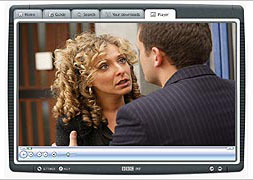 The BBC Trust has given the go ahead for the BBC’s iPlayer service (iMP).
The BBC Trust has given the go ahead for the BBC’s iPlayer service (iMP).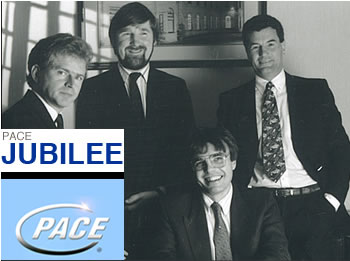 25 years! Staggering how old the industry is now isn’t it?
25 years! Staggering how old the industry is now isn’t it?

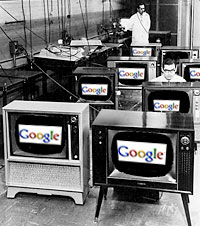 The company is set to unveil deals today with satellite TV service EchoStar Communications and Astound Cable in the US to broker commercials in a similar way to how it offers online advertising.
The company is set to unveil deals today with satellite TV service EchoStar Communications and Astound Cable in the US to broker commercials in a similar way to how it offers online advertising. During the television pilot, Google will serve commercials to EchoStar’s Dish Network satellite channels, a US service which enjoys around 13.1 million subscribers. The adverts won’t look any different to regular ones, carrying no Google branding and appearing in the usual time slots.
During the television pilot, Google will serve commercials to EchoStar’s Dish Network satellite channels, a US service which enjoys around 13.1 million subscribers. The adverts won’t look any different to regular ones, carrying no Google branding and appearing in the usual time slots.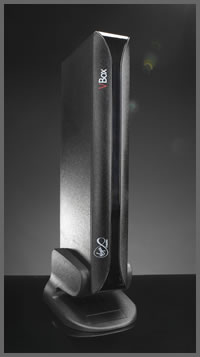 Virgin Media has ramped up the availability of its quadplay (broadband, phone, mobile and TV) services beyond its cable franchise network with today’s announcement of a new digital TV service.
Virgin Media has ramped up the availability of its quadplay (broadband, phone, mobile and TV) services beyond its cable franchise network with today’s announcement of a new digital TV service.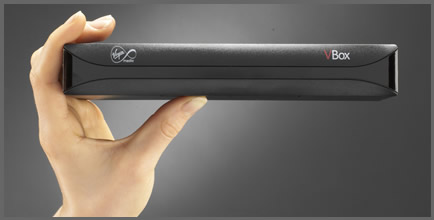
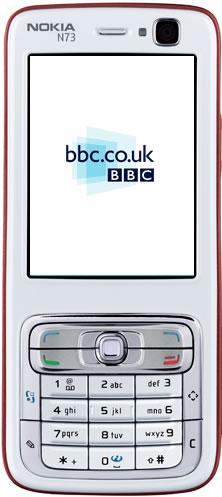 Three UK operators will be taking part, Orange, Vodafone and 3 giving subscribers to the trial the ability to watch BBC One, BBC News 24 and BBC Three streamed on their mobiles. Beyond some sports programmes and programmes where they don’t have the necessary rights.
Three UK operators will be taking part, Orange, Vodafone and 3 giving subscribers to the trial the ability to watch BBC One, BBC News 24 and BBC Three streamed on their mobiles. Beyond some sports programmes and programmes where they don’t have the necessary rights.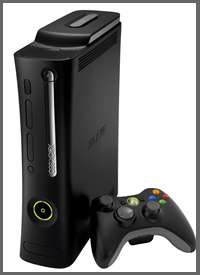 Yesterday Microsoft confirmed that the Xbox 360 Elite is a real product and will begin arriving in US stores on 29 April with an expected retail price of $480.
Yesterday Microsoft confirmed that the Xbox 360 Elite is a real product and will begin arriving in US stores on 29 April with an expected retail price of $480.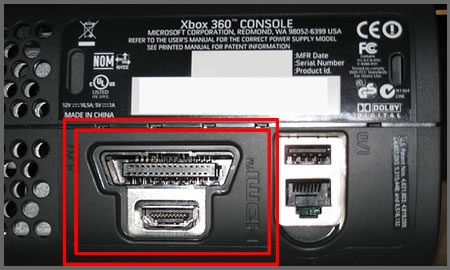
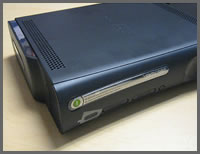 Peter Moore, Corporate Vice President – Interactive Entertainment Business, Microsoft, turned the hyperbole meter way up to deliver the following, “Today’s games and entertainment enthusiast has an insatiable appetite for digital high-definition content. Xbox 360 Elite’s larger hard drive and premium accessories will allow our community to enjoy all that the next generation of entertainment has to offer.”
Peter Moore, Corporate Vice President – Interactive Entertainment Business, Microsoft, turned the hyperbole meter way up to deliver the following, “Today’s games and entertainment enthusiast has an insatiable appetite for digital high-definition content. Xbox 360 Elite’s larger hard drive and premium accessories will allow our community to enjoy all that the next generation of entertainment has to offer.”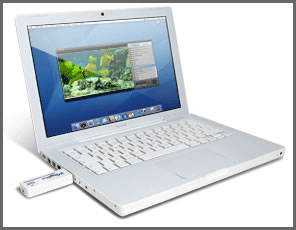 Miglia have not only signed a deal with software suppliers Equinux, but have a package available already with the software, called The Tube. They’re calling the hardware and software bundle the TVMini Express.
Miglia have not only signed a deal with software suppliers Equinux, but have a package available already with the software, called The Tube. They’re calling the hardware and software bundle the TVMini Express.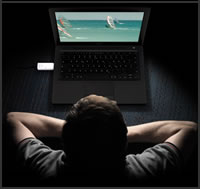 Equinux are confident with the swift reaction of the software, as they tell us it was written “from the ground up” in Cocoa, Apple’s object-oriented application environment designed specifically for developing Mac OS X-only native applications. ie it wasn’t written for Windows and ported over to the Mac.
Equinux are confident with the swift reaction of the software, as they tell us it was written “from the ground up” in Cocoa, Apple’s object-oriented application environment designed specifically for developing Mac OS X-only native applications. ie it wasn’t written for Windows and ported over to the Mac.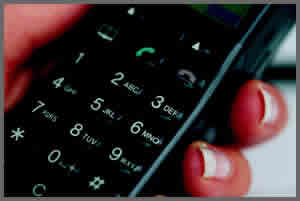 Ofcom has just announced that it will be carrying out an inquiry into the whole area.
Ofcom has just announced that it will be carrying out an inquiry into the whole area. The inquiry will be led by Richard Ayre, a former Deputy Chief Executive of BBC News. He is expected to receive extensive input from the premium rate services regulator, ICSTIS, who are already investigating a number of individual cases.
The inquiry will be led by Richard Ayre, a former Deputy Chief Executive of BBC News. He is expected to receive extensive input from the premium rate services regulator, ICSTIS, who are already investigating a number of individual cases.